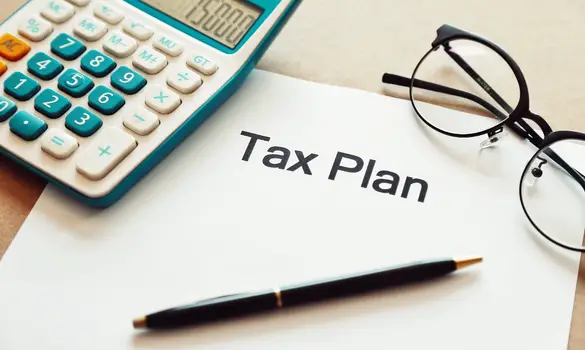
Small business tax preparation can be a stressful process for business owners. You could always outsource tax filing to accountants, however, many prefer to save money and file taxes themselves. With advanced free tax filing software and online tax filing courses, the process is easier than ever for small business owners. There is still a few important steps you must follow in order to follow in order to remain compliant with the IRS. Continue reading this post to learn how to conduct small business tax preparation on your own and save money.
Gather The Appropriate Forms
Depending on your business ownership structure, you may have to complete a number of different filing forms. Sole proprietors must complete Schedule C forms along with their income taxes. Otherwise, they must fill out a 1099-MISC form. C-Corporations must file taxes using Form 1120, whereas S-Corporations must complete Form 1120S. Partnerships file under Form 1065. In addition, they must submit expenses, losses, and revenues through a Schedule K-1 Form. Beware that tax liability varies greatly depending on the structure of your business and forms completed. In addition, if you are filing after deadlines, you need to file a business tax extension form as well. Consider the forms required of your business before you submit your own taxes.
Compile Financial Documents
You must gather all pertinent financial documents and records before you can file your own taxes. The most important records you need are likely your income statement and your balance sheet. However, you also need bank or credit card statements, as well as payroll documents if you have employees. Most forms require information from last years tax return, so assure you have this nearby as well. Furthermore, gather any asset purchasing details, schedules for depreciation, and other accounting forms. Research the necessary documents you must file prior to submitting your own taxes.
Deduct Insurance Premiums
Before you file your own taxes, ensure you deduct all your insurance premiums. Being self-employed, you can deduct health insurance premiums towards dental, vision, medical, or long-term care. These deductions apply to your dependents as well. If you are a sole proprietor, do not deduct your premiums within Schedule C. Business owners can instead report the amount they paid towards premiums on Line 29 of the 1040 Form. Beware that deductions are limited to the net profits of your business. Theremore, if you pay more for insurance than your business earned, you must file excess as itemized medical expenses. Deduct your various health insurance premiums prior to filing with the IRS.
Collect Receipts
You need to compile all of your receipts prior to submitting your self-filed taxes. Mainly, you need receipt to document purchasing assets. Assets include, but are not limited to business furniture, vehicles, computer equipment, and additional large purchases. Assets typically cost more than $500 and will be used for a minimum of one year. Business assets often depreciate slowly, allowing you to stretch the purchase over a number of years. However, you can additionally utilize tax code Section 179 to depreciate assets immediately within the first year of purchase. Otherwise, you can follow a traditional depreciation formula for business taxes. Before you file with the IRS, you must gather receipts for asset purchases.
Be Aware Of Deadlines
In order to ensure and maintain compliance, guarantee that you are aware of deadlines. Errors in making deadlines can be a costly mistake for your businesses financials and reputation. Assure that you provide yourself reasonable time to prepare documents prior to tax filings. If you are uncertain of your ability to meet deadlines, file a tax extension. You can even file for an extension online. Doing so allows you to extend your filing deadline until the following Fall. However, just beause your filing deadline is moved, you still must pay taxes by the original deadline. If you fail to do either, you risk facing tax penalties or back taxes. Make certain that you are aware of your deadlines in order to maintain a tax compliant status.
Small business tax preparation can be a difficult process for business owners. Despite this, it is frequently more affordable then seeking outside preparation help. In order to prepare your taxes, there are a few crucial steps you must follow. Research the appropriate forms you need to fill out. Compile all necessary financial documents and records. Deduct your personal insurance premiums. Gather receipts for asset purchases. Furthermore, assure that you are constantly aware of approaching federal and state filing deadlines. Follow this post if you are interested in how to conduct small business tax preparation on your own and save money.
 Business First Family Business, Accounting, Finance, Investing, Marketing And Management
Business First Family Business, Accounting, Finance, Investing, Marketing And Management